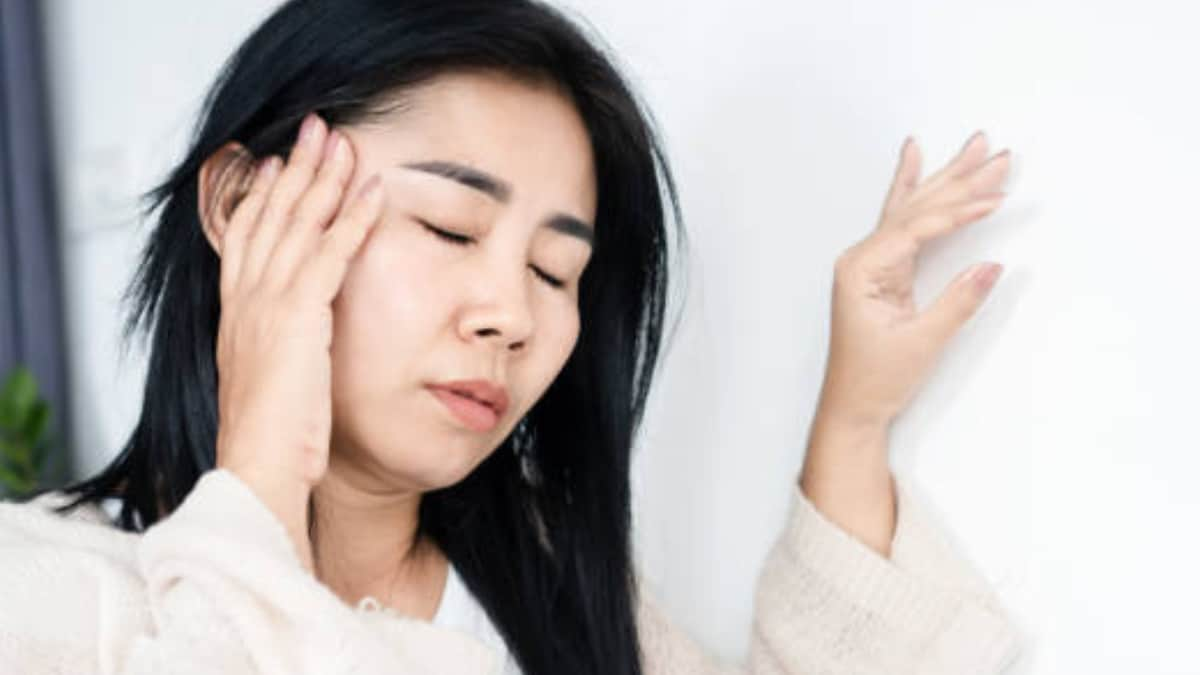From Symptoms To Precautions, All You Need To Know About Meniere’s Disease – News18
With the advancements that are available to mankind in today’s day and age, most people are aware of most things that surround us. However, there are a lot of terms that one is still not aware of, Meniere’s Disease is one such disease that not many know of but has great implications on human health. If the name is still not ringing a bell then you have nothing to worry about because you are not the only and here are all the details you need to know about it.
Dr. (Brig) A. V. Ramesh, Director, ENT & Cochlear Implant, BLK Max Super Speciality Hospital, says, “Meniere’s Disease was first described by Prosper Meniere in the 1800s. It is characterized by episodes of giddiness, tinnitus and hearing loss or fullness in the ears. It may be preceded by an aura of twinkling in front of the eyes, heaviness in the head etc. Each episode typically lasts for a few minutes to hours. The symptoms are likely to be worse as the episodes progress. The hearing loss slowly becomes permanent. There is never a loss of consciousness. Rarely the giddiness is so sudden that the patient may fall down.”
He further added, “During the episodes, Audiometry shows a low-frequency sensorineural hearing loss, VNG and ECoG will be positive for vertigo due to Meniere’s Disease. Between the episodes, the results may be normal. MRI Brain and ECG may be advised to rule out brain stroke and heart attack respectively.”
According to studies, the exact cause of Meniere’s Disease is not known. It is hypothesized that there is an increased fluid collection in the inner ear called Endolymphatic Hydrops. Till the pressure in the inner ear is high, the patient is symptomatic. Once the pressure reduces, the patient improves. All efforts at treatment are made to prevent and treat the increase in inner ear pressure.
Dr. Samir Bhargava, Consultant, ENT, P D Hinduja Hospital and Medical Research Centre, Khar, says, “When the cause of idiopathic (primary) endolymphatic hydrops is not known, it is termed Meniere’s disease. When the cause of endolymphatic hydrops is known, such as infections (measles, mumps, syphilis), trauma (head injury), or autoimmune disease, it is termed secondary endolymphatic hydrops or Meniere’s syndrome. The main pathology is the distension of the endolymphatic system due to an increased volume of endolymph.”
Symptoms Of The Disease
Dr. Bhargava notes, “The typical presentation is recurring attacks of vertigo with tinnitus and hearing loss with the fullness of the ear. The attack can last from a few minutes to several hours. Clusters of attacks can be separated by long remissions. Patients can have single or sporadic attacks or periods of unrelenting, recurring attacks.”
“Some patients are slightly inconvenienced or extremely incapacitated. Attacks are often accompanied by nausea, vomiting, sweating, or diarrhoea and can be exacerbated with head movements. The hearing loss is often fluctuating and progressive. Some patients can get drop attacks (otolithic crises of Tumarkin), where a sudden unexplained fall can occur without loss of consciousness” he added.
Precautions That Should Be Taken
- It is recommended to quit smoking due to the fact that nicotine can lead to vasospasm.
- Limit salt intake to 1.5-2.0 g/day for optimal health.
- Patients should avoid excessive water intake and overindulgence in coffee, tea, and alcohol.
- Patients should avoid stress and assume a relaxed lifestyle.
- Avoid activities that require good body balance and professions such as flying, working at heights, and underwater diving.
Treatment-
Acute attack:
“During an acute attack, patients have severe vertigo, nausea, and vomiting, along with anxiety. The patient should be given bed rest and avoid excessive movements, with reassurance to allay worry and anxiety. In cases of severe vomiting, intravenous fluids may be required. Drugs like vestibular sedatives are given to relieve vertigo. Drugs like prochlorperazine or dimenhydrinate can be given sublingually, intravenously, or intramuscularly,” says Dr. Bhargava.
Chronic phase:
During the chronic phase, vestibular sedatives, vasodilators to increase labyrinthine blood flow, and diuretics to reduce endolymph pressure are advocated. Elimination of allergens and control of stress through a change in lifestyle are also advocated.
Dr. (Brig) A. V. Ramesh added, “Surgery is recommended to people who receive little or no benefit from medicines. Injection of steroids into the middle ear space allows it to slowly seep into the inner ear and has shown beneficial effects in many patients. Other surgeries aim to control the production and outflow of inner ear fluid. Patients with severe hearing loss may be advised more radical surgeries.”
For all the latest lifestyle News Click Here

